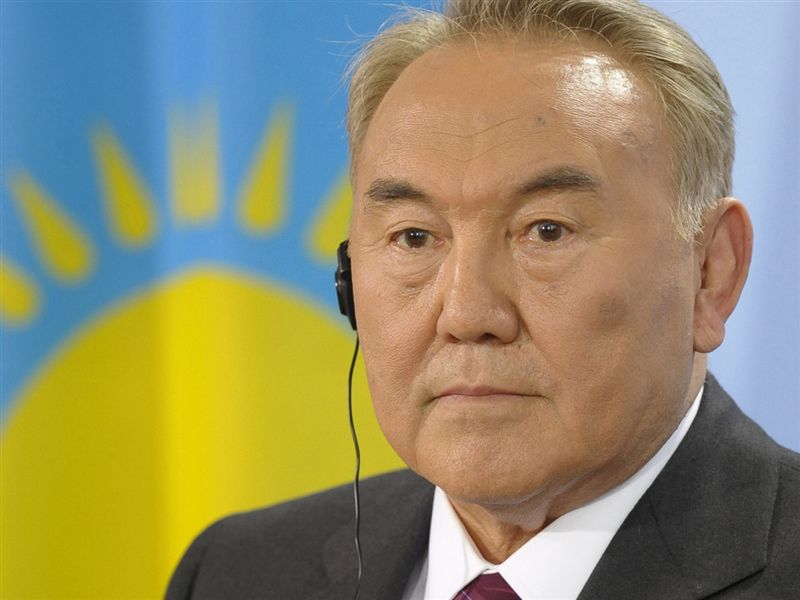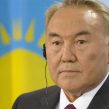
Power Struggle Intensifies in Nazarbayev’s Court as Presidential Elections Draw Near
Publication: Eurasia Daily Monitor Volume: 7 Issue: 189
By:

In anticipation of the 2012 presidential elections, political tension is mounting in Kazakhstan. Recent developments suggest President Nursultan Nazarbayev, who celebrated his 70th birthday last July, intends to perpetuate his presidency. In August, Nazarbayev appointed his loyal servant, Nurtai Abykaiev, as head of the National Security Committee (KNB), removing his shadowy pawn, Adil Shayakhmetov, from this post.
For many, the appointment of Nurtai Abykaiev as the head of the powerful structure signals a new phase in the underlying strife between the presidential contenders in 2012. Abykaiev, one of Nazarbayev’s few faithful allies, headed the KNB during the latter’s victorious presidential campaign in 1998, using subtle moves to eliminate numerous hurdles and forcing the former Prime Minister, Akezhan Kazhegeldin, the most vociferous rival of Nazarbayev, to flee the country.
However, Abykaiev’s reputation was seriously damaged following the scandalous sale of MiG-21 fighter jets to North Korea which provoked an international row. But Abykaiev was given the inconspicuous post of deputy foreign minister and later was shifted to head the Senate chamber of Parliament. In 2006, Abykaiev’s name resurfaced, allegedly being involved in the mysterious assassination of Altynbek Sasenbayuly, a fierce opponent of Nazarbayev. The case remains unresolved. Abykaiev was hastily appointed as Kazakhstan’s Ambassador to Russia, and in 2008 returned to his post in the foreign ministry.
Independent observers link the return of Abykaiev to the KNB with the forthcoming presidential elections. It is not ruled out that Nazarbayev may opt for early elections denying any chance for his possible rivals to consolidate their forces. Among potential contenders for the presidency analysts often name Imangali Tasmaganbetov, the current mayor of Astana and Kassymzhomart Tokayev, the speaker of the Senate and former Foreign Minister. Nazarbayev, aware of the rising influence of the ambitious Tasmaganbetov, skillfully uses Asslan Mussin, the head of the presidential administration, against him. But in the final analysis, the only man capable of minimizing Tasmaganbetov’s electoral chances is Abykayev, the unrivalled stage manager of behind-the-scenes political manipulation (Zhas Alash, September 30).
While on the international scene, Nursultan Nazarbayev deserves some credit for the chairmanship of the Organization for Security and Cooperation in Europe (OSCE), as well as the Kazakhstan’s relatively stable economic and political development attributed to his leadership skills. However due to his old age, it is increasingly difficult for him to fulfill his functions. This apprehension drives the hidden power struggle within his entourage. Thus far, the reverberations of the brewing strife are felt only at the lower levels of power, among cabinet members from different regional clans. If Nazarbayev wants to be re-elected in 2012 or even earlier, and if the election is to take place before that time, he can mainly count on the support of southern Kazakhstan. Asslan Mussin, the head of presidential administration who favors members of the government from southern regions, is said to be behind the recent sacking of the Education Minister, Zhanseyit Tuymebaiev, a favorite of the State Secretary, Kanat Saudabaiev, another influential figure from the opposing camp of “westerners.” Yet, Mussin lost one of his allies, Health Minister, Zhaksylyk Doskaliev, who was faced with corruption charges by the financial police. Allegedly, Doskaliev attempted to leave the country immediately after being accused of illegally selling land allotted for the construction of medical workers’ housing. But one may question why this criminal case, which occurred in 2003, has come into the spotlight again (Delovaya Nedelia, October 1).
It may be that the rampant anti-corruption campaign, increasingly targeting more big players on the political scene is designed, among other things, to help Nazarbayev to remove his opponents on the eve of the presidential election. On the other hand, the widely publicized campaign to fight corruption allows Nazarbayev to win support among the population. In recent opinion polls, 40 percent of respondents supported prolonging Nazarbayev’s presidency (Vzgliad, September 22).
An additional advantage for Nazarbayev is the weakness of the opposition, which has no significant support among the population. The most radical leaders of the opposition are effectively isolated. The head of the Kazakh bureau of the international human rights organization, Yevgeni Zhovtis, was sent to a penal colony last year following his involvement in a road accident. The authorities have refused to register Alga, the newly formed liberal party. In the latest move, radical opposition groups and the Communist Party of Kazakhstan united to form the Narodovlastie (People’s Power) bloc, and called for a nationwide referendum on September 25 to force Nursultan Nazarbayev to step down from his post before the 2012 presidential elections. But no one appeared on the square in Almaty to support the campaign.
The present economic and political climate in Kazakhstan provides favorable grounds for Nazarbayev’s popularity. Propelling Kazakhstan into a Customs Union with Russia and Belarus has weakened Russian nationalism. The growing number of Kazakh repatriates returning to the land of their ancestors has only the president to thank for social benefits they receive. But all this cannot conceal Nazarbayev’s worries: rising to power in Kazakhstan is much easier than descending from the top.




